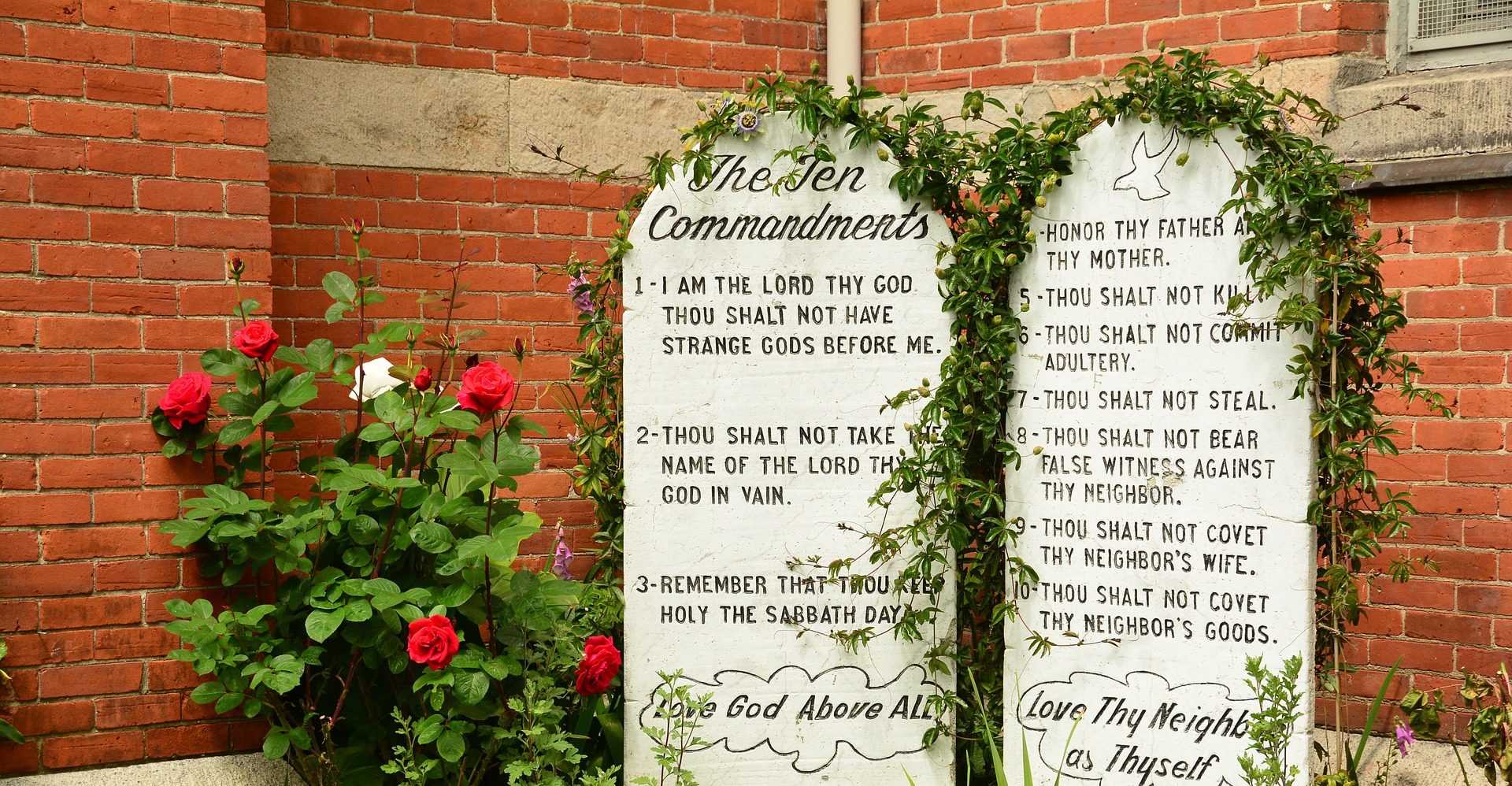Need I say, many questions about religion such as the one being answered in this article often make the faulty assumption of putting all religions into one box. This is a common and dangerous mistake. As Vince Vitale rightly observes, “The more you study them, the clearer it becomes that while major worldviews are sometimes superficially similar, they are fundamentally very different and often at odds.”[i] Since this writing is from a Christian standpoint, the argumentation would be rooted in a Christian worldview.
Many people today hold the view that religion is nothing but a control mechanism that infringes on people’s individualities and freedoms. Even within religious communities there are many who are beginning to reconsider their affiliation and commitment to “organized” modes of religion which in their own view is subjugating.
To simply dismiss these claims as flimsy or some cheap excuse to not believe in God would be ingenuine. I don’t think people just wake up one morning and think “hmmm, religion is repressive”. Such views don’t just pop out of a vacuum. There must be a reason (often genuine) why someone would think that way and it is very important to take the time to graciously understand where people are coming from before giving an answer.[ii]To do otherwise would be quite foolish and shameful.[iii]
There are several reasons driving people to think this way about Christianity that it would be practically impossible to specifically address them all but having spent a lot of time listening to people, I pinpointed three common reasons that would be discussed below
- Experiences Within the Church
Unfortunately, churches have to take a lot of the responsibility for the negative images created in the minds of people. This is particularly true for those who have experienced some form of repression in Christian communities that a place lot of emphasis (often to an extreme level) on behaviour at the detriment of cultivating hearts. In some Christian circles, rules and laws are often to taken into an extreme context to the point that they begin to contradict the teachings of the bible and even worse, choke the atmosphere of love and compassion required in any Christian community.
For example, I have a close friend who along with his family were excommunicated from their church for having the courage to innocently question some practices in the church. Another friend of mine narrated his experience of being literally dragged out of a church. His offence: he wore ¾ pants which was deemed inappropriate. There are some churches that prohibit a wide range of activities such as watching tv, surfing the internet, wearing jewelleries, using perfume, drinking alcohol, and dating because they were deemed ‘impure’. There are many more examples of such experiences, some even more perplexing than the ones mentioned above.
To be clear, these forms of religious experience do not authentically reflect Christianity and I empathize with those who have been unduly burdened and put down by these. For example, nowhere in the Bible does it say (explicitly or implicitly) that drinking alcohol is a sin. While it does inform us about the dangers of excessiveness/ addiction, it nevertheless affirms responsible drinking. To outrightly condemn or prohibit the drinking of alcohol is not only un-Christianlike, it is an extreme that does fit the bill of stifling or repressing people.
- Conflict with Personal Convictions
In many cases, people are quick to brand Christianity as repressive because it clashes with some of their deeply held personal convictions, especially in instances when it demands us to live in a way that goes against our own will and desires. For example, some would say that the bible’s teaching of sex as something to be only enjoyed within the context of a lifetime and loving relationship between one man and one woman to be outrageously repressive. This dictum can sound quite infuriating in the ears of our sexual “laissez-faire” generation.
A major problem with this claim is that it assumes the reason for prohibition on sex is God’s desire to control and make our lives unbearable. This couldn’t be further from the truth. God is not anti-sex. He is pro-sex and intended sex for us to enjoy within the right context (You can learn more about that here). I suggest we first ask questions about why certain rules exist (even when they clearly go against our desires) before drawing a conclusion about the motives driving such rules.
- Clash with the Predominant Post-Modern Worldview
Our culture today is increasingly permeated by post-modernism; the view that there is no fixed meaning or truth. In other words, all truth is considered relative or subjective. Within this worldview, no one can make claims to any objective moral truth about anything. To do so will be ingenuine. In a predominantly post-modern culture, religious belief systems and their resultant institutions often constitute an arbitrary means of control and domination of others.
Contrastingly, the Christian worldview stands diametrically opposed to this as it affirms the existence of objective truth, encourages us to pursue truth and build our lives upon the truth. The problem with this post-modern thinking is the self-refuting logic within it. For those who hold the view that, “There is no objective moral truth”, I always follow up with a question that Frank Turek made very popular, “Is that true?” However the post-modernist answers the question is most likely to generate problems. If yes, then our opinions on rape, female genital mutilation and sex trafficking are just a matter of our preferential tastes just like our preferences for food, fashion and music (Seriously, I’m not being sarcastic). We might as well get western countries to end their campaign of “imposing” their notion of human rights in other parts of the world. If no, why trust the statement in the first place.
The Crux of the Matter
Christianity is not about following a set of rules. It is about following Jesus and I think we often forget that fact. We need remember that He is the perfect embodiment of love. It is no wonder why the greatest commandment and desire for us is to love Him with all we’ve got and love others as we would want to be loved (writing an article on this great law soon) and better still, His ways are not burdensome as some would have you think. I can attest to this from a first-hand experience of living as a Christian.
To put into perspective, we do not follow rules in order to be accepted or loved by God. Rather, it is because we are loved and accepted by Him that we are intrinsically motivated to follow His ways.
Famous English poet and philosopher, G.K. Chesterton once said, “Whenever you remove any fence always pause long enough to ask why it was there in the first place.” If we take that long pause to figure out God’s purpose for laying down certain rules and laws, we would figure that he does so for 2 inextricably connected reasons;
- To protect us from harm
In addition to God being love, he is also the one who created us, knows us better than we know ourselves and most importantly cares about us. He gives us laws to protect us from causing harm to ourselves or others not to oppress us. Even though, we might not fully understand some of His instructions and will for our lives, we can always rest on the assurance that He gave them for our own good.
- To enable us to rightly enjoy our freedoms
Imagine for a second that the people of the Netherlands decide to get rid of their constitution, laws and statues, do you really think that they would still enjoy their status as one of the most liberal countries in the world? Of course not, it would gradually disintegrate into anarchy, and people would live in fear.
Likewise, God’s laws are put in place to serve the purpose of safeguarding our rights and liberties. For example, in a Christian worldview, every human (Christian and non-Christian) is created equally in God’s image worthy of love, honour and respect. For this reason we have a right to be treated in the manner worthy of a person of value and a responsibility to treat others likewise.
Conclusion
Jesus said he came so that we may have life and have it in abundance.[iv] To each one of us he is calling out to us saying, “Come to me, all of you who are weary and burdened, and I will give you rest. Take up my yoke and learn from me, because I am lowly and humble in heart, and you will find rest for your souls. For my yoke is easy and my burden is light.”[v] God’s is not a cosmic buzzkill who is out to reign over us in the form a form of ‘celestial’ North Korea.
My decision to follow Christ has been liberating in every aspect of my life and I implore you to also open-mindedly consider the authentic truths about Christianity and remain confident that you will find it to be extremely exhilarating.
[i] Ravi K. Zacharias and Vince Vitale, Jesus among Secular Gods : The Countercultural Claims of Christ, n.d.



